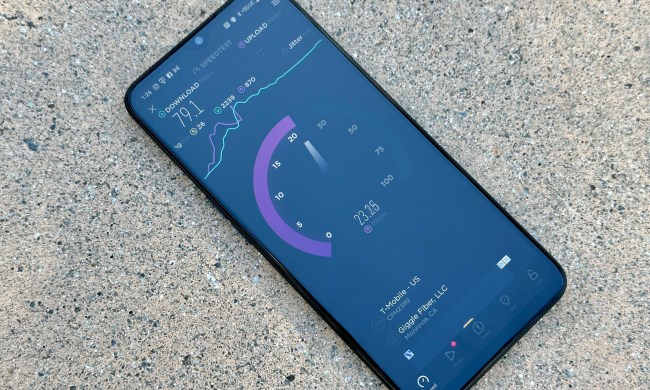T-Mobile is expanding its 5G fixed wireless service to businesses nationwide, making it easier and more affordable for companies to get online.
The new business internet service extends the 5G Home Internet that the carrier launched last year. It uses the same 5G technology, tailored to the needs of businesses.

The new service will be available anywhere within T-Mobile’s wireless footprint, enabling businesses to get all their stores and remote offices online. T-Mobile notes that it’s the first and only nationwide internet provider to offer 5G fixed wireless for businesses.
More significantly, for locations within T-Mobile’s unlimited broadband coverage, businesses will pay the same prices as consumers — $50 per month. Unlike traditional internet providers such as Comcast, T-Mobile isn’t marking up its 5G fixed wireless services just because they’re being used in businesses instead of homes. During a livestreamed event that took place today, Callie Field, President of T-Mobile’s Business Group, said, “Internet providers think they can slap ‘business’ on something and charge more for it,” even though “it’s the same service.”
“For businesses with offices and stores across the country, working with internet providers is a mess. Businesses are forced to navigate a patchwork of players because nobody can offer service nationwide,” Field added in the company’s press release. “It’s positively medieval. You have to battle with the local lord in each fiefdom just for internet access in your stores or remote offices. Today, the Un-carrier is changing that, launching T-Mobile Business Internet nationwide.”
T-Mobile recognizes that some businesses may need to connect locations in areas that aren’t yet covered by the carrier’s unlimited broadband. In those cases, T-Mobile will offer 100GB of data for $50 per month or 300GB for $70 per month. Usage above those caps will be throttled to 600 kbps, or businesses can add more high-speed data at $2 per GB. These locations will transition to unlimited broadband data for $50 per month once T-Mobile expands its 5G network into those under-serviced areas.

T-Mobile’s 5G business internet plans will also provide options that businesses need, such as static IP addresses and content filtering and a new all-in-one enterprise-grade 5G router custom-designed for business use in partnership with Cradlepoint. Small businesses can also get a free tablet plan with unlimited 5G data when they sign up for Business Internet for a limited time.



